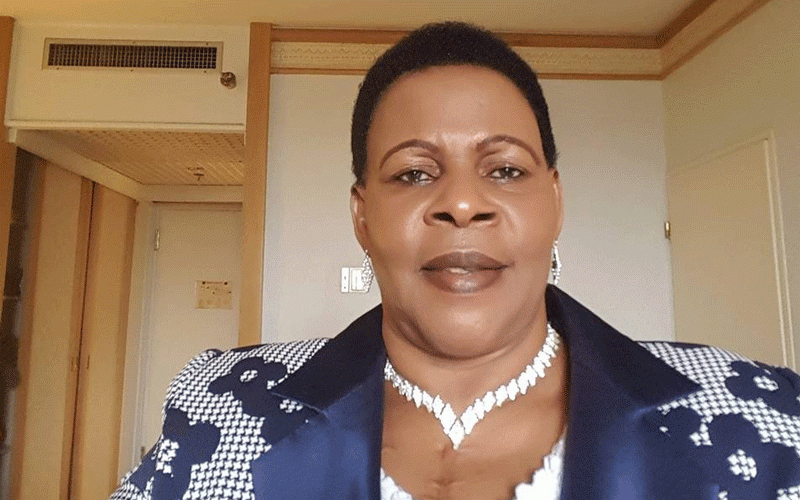BY LAWRENCE MANGENJE/ FARAI MATIASHE
MANY ordinary Zimbabweans have been forced to make do with a single meal a day as prices of basic foodstuffs continue to skyrocket as the local surrogate currency continues to lose value against the United States dollar.
Syvia Matare (58) from Dzivarasekwa is one such person who has been forced to make significant lifestyle changes on account of the high prices of basic goods.
“If it was not for the few sweet potatoes I harvested, I don’t know where I would be getting food,” said the widow, slowly biting a sweet potato and taking it down with a cup of murky-looking tap water.
“This is my only meal for today. I ran out of mealie meal from the maize I harvested, and I cannot afford to buy some because it is now too expensive. I do not have any source of income.”
A 10kg pack of mealie-meal changed prices as much as three times in four days in most retail outlets across the country.
Keep Reading
- Chamisa under fire over US$120K donation
- Mavhunga puts DeMbare into Chibuku quarterfinals
- Pension funds bet on Cabora Bassa oilfields
- Councils defy govt fire tender directive
The economy has been in free-fall since the President Emmerson Mnangagwa-led government introduced the so-called Transitional Stabilisation Programme last year despite official claims that the country was realising surplus revenue.
Prices have been skyrocketing ever since government stopped subsidising fuel, while the inflation rate has been going up, eroding workers’ salaries by almost eight-fold.
At interbank rate, the Real Time Gross Domestic Settlement dollar (RTGS$) is trading at 1:6,4 against the United States dollar, while on the parallel market the RTGS$ trades at 1:11 against the US dollar.
A 2-litre bottle of cooking oil is pegged at ZWL$24, 2kg sugar (ZWL$13) and 10kg mealie (ZWL$18).
While people like Matare are struggling to make ends meet due to lack of income, even those in formal employment have not been spared the horror brought about by the government tinkering with the economy while avoiding outright addressing the fundamentals.
Prosper Dzvairo, an administrator with a Harare-based security company, said being employed did not spare him from the economic imbroglio that the country is heaving under.
“The same salary I was getting when commuter omnibus operators were charging 50 cents and when a 2-litre bottle of cooking was at $3.50 is the same I am still getting now when they cost ZWL$3 and ZWL$24, respectively,” he said.
For Dzvairo, the cheap Zupco mass transport project that was introduced by the government to curtail transport crises, has not been a solution.
“Ever since the Zupco buses were introduced, I have never boarded one to work. I live in Dzivaresekwa 3 and people actually walk a distance of about 4km to Sisk rank where the bus starts collecting passengers, so by the time it gets there, it will be filled to capacity,” he said.
Tatenda Manyengavana, from Mabvuku, said he was also struggling to put food on the table.
“My family at times go to bed on empty stomachs. Prices have gone up and I cannot afford to buy basic commodities for my children. I am failing to pay even school fees. I work as a painter at a construction company, and I earn ZWL$400. My pay is nothing considering the prevailing US$:RTGS$ rate,” he said.
Some retail outlets in Harare and Bulawayo are charging prices of their goods using a two tier system; the local RTGS$ and the US$. Sharon Chinembiri, from Mbare told NewsDay Weekender that she was failing to buy tablets for her daughter at pharmacies as they were charging in US$.
“Things are not well. Just yesterday when my daughter was ill, I went to the clinic and they told me to buy tablets at the pharmacy. I went to the pharmacy, only to discover that the medication was being sold in US dollars,” she lamented.
Mnangagwa, who was declared winner of the disputed election in July 2018, has been struggling to navigate the plane due to a number of factors, including politics. Recently, he called for a national dialogue, but the main opposition MDC leader Nelson Chamisa refused to take part in the negotiations, saying someone neutral should lead the process.
In a Cabinet briefing in early June,, Finance and Economic Development minister Mthuli Ncube said monopolies and cartels were contributing immensely to price hikes.
Economist George Mapope, however, refuted the minister’s claims, saying there were more push factors in price hikes than monopolies and cartels.
“Monopolies and cartels are not a cost driver. The cost driver is the essence of doing business which is defined by parameters such as the availability of basic services of supplies in manufacturing, among them fuel, water and electricity,” Mapope said.
He said the Harare municipality was struggling to provide clean water, for instance, and that forced bakeries to buy bulk water for production purposes, adding that in the wake of extensive power cuts, the bakeries had to buyMANY ordinary Zimbabweans have been forced to make do with a single meal a day as prices of basic foodstuffs continue to skyrocket as the local surrogate currency continues to lose value against the United States dollar.fuel for their back-up generators.
Mapope said the reality was that the fundamentals of a functional economy were not in place, forcing people to do extraordinary adjustments to survive.





